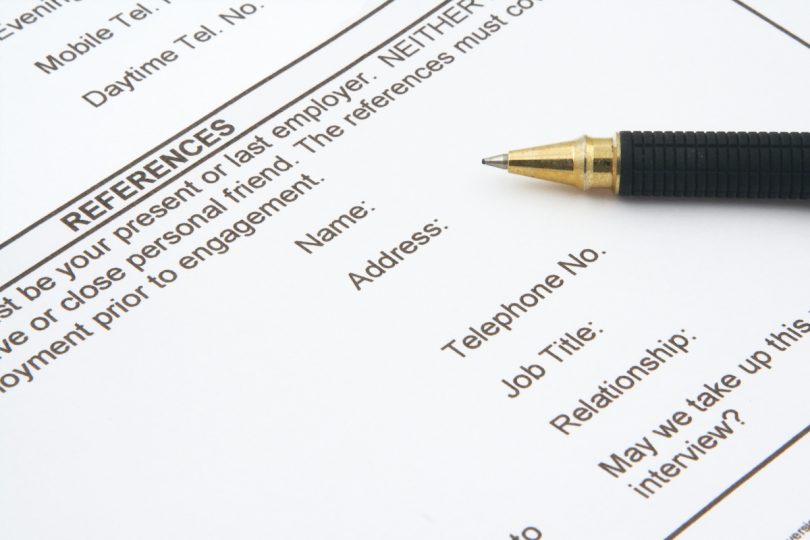Chaloner and PRSA have teamed up to write a series of articles on how candidates and clients can best navigate the recruiting process. Each post of the series chronologically follows the steps of a search process, with direct insights from Chaloner recruiters, clients, placements and candidates who Chaloner has partnered with during the recruiting process. Throughout the series, readers will have the opportunity to learn about how to best partner with a search firm and recruiters.
After nailing the virtual interview and likely additional or final interview rounds, you should anticipate the hiring manager or recruiter to ask you for references to proceed to the last stages of the process. Even though reference checking typically comes in the final stage of an interview process, it is a crucial and significant step requiring considerable thought for candidates and hiring managers.
How much thought have you given to whom you’ve asked to speak on your behalf? How much care are you taking with this part of the process? This month we’re diving deep into the do’s and don’ts of reference checking for candidates and hiring managers. Keep in mind these six guiding principles for the next time you reach out to your references.
- Think strategically. Your list should include a mix of supervisors, peers, clients (when applicable) and direct reports (if you have management experience) who you know will provide strong endorsements. Prospective employers want to get a well-rounded sense of your experience, work ethic and character. Unless there is a relevant reason to do so, steer clear of asking friends or college professors to serve as references.
- Provide context. Give your references a link to the job description and the company website before a call with the hiring manager. Bring them up to speed on your story; remind them of what you’ve done, what you hope to do and how this opportunity fits into the picture. It is understandable for shifts to occur in dynamics and proximity with potential references due to COVID-19. Consider setting up a virtual meeting with a possible reference as a way to catch up with them and maintain your relationship. It’s OK to refresh their memory of projects you worked on and things you accomplished in your time together.
- Help facilitate. Provide the recruiter/hiring manager with up-to-date contact information for your references, including scheduling issues. If your reference will be out of the country for several weeks, then you’ll want to make sure the call can happen before they are out of cell range or in a different time zone. If a hiring manager is facilitating the scheduling, including setting up a Zoom meeting, then be sure to let your reference know so that they can prepare accordingly for a video call. Before the outreach of the recruiter, get permission from the reference to continue to use their name and set expectations as to when they should expect contact.
- Be transparent. It is entirely acceptable to have a list that only includes people outside your current organization. If you are not providing a reference from your current employer, then make sure the hiring manager understands why (e.g., your employer may not know you’re actively searching for a new role).
- Say thank you. Close the loop with your references by thanking them for their time and support. You should also follow up once the process has finished and let them know whether you got the job or what kind of role you are continuing to look for. Sending out a thank you letter or email is also highly recommended for the hiring manager and the people you have interviewed with up until now!
Now that you have these do’s and don’ts for your next reference check process, we also want to unpack the nuts and bolts of the conversation between the hiring manager and your references itself, covering what questions are typically asked and what information the hiring manager or recruiter is looking for from a reference.
Getting down to the details
The reference has information that no other part of the hiring process can reveal: first-hand experience working with the candidate. You want to frame the conversation so that the reference can speak openly and honestly; this means listening well and asking good follow-up questions. Having authentic references will ensure great examples of how future employers can envision you on their professional teams.
Discussing strengths and weaknesses
No doubt, the candidate has already been asked to speak to their perceived strengths and weaknesses. The reference might corroborate, dispute or further enhance what you’ve been told, which will reveal something about the candidate’s level of self-awareness. Instead of putting a reference on the spot and asking them what a candidate is not good at, you can phrase the question differently by asking something like, “If you were going to recommend a professional development course for this person to attend, then what would it be?”
Setting them up for success
“References can be excellent sources of information on how to best work with a new hire,” suggests Jenn Saldarelli. “They might share really valuable information on how a candidate organizes him/herself, best takes direction, communicates, or even some personal information, that could otherwise take months for the hiring manager to figure out.”
For instance, when all references mention that the finalist candidate they’ve worked with likes to be acknowledged for their work, this is valuable information to pass on to the hiring manager.
You can usually tell when a person will be a good reference for someone when they have many positive things to say right off the bat and specific themes carry through the conversation. If you are ever asked to serve as a reference for someone, then do them a favor by reading up on the role and speaking candidly with the recruiter or hiring manager. Your enthusiasm about a candidate will go a long way toward securing the potential employer’s confidence at this later point in the process.
[Photo credit: kmit]






